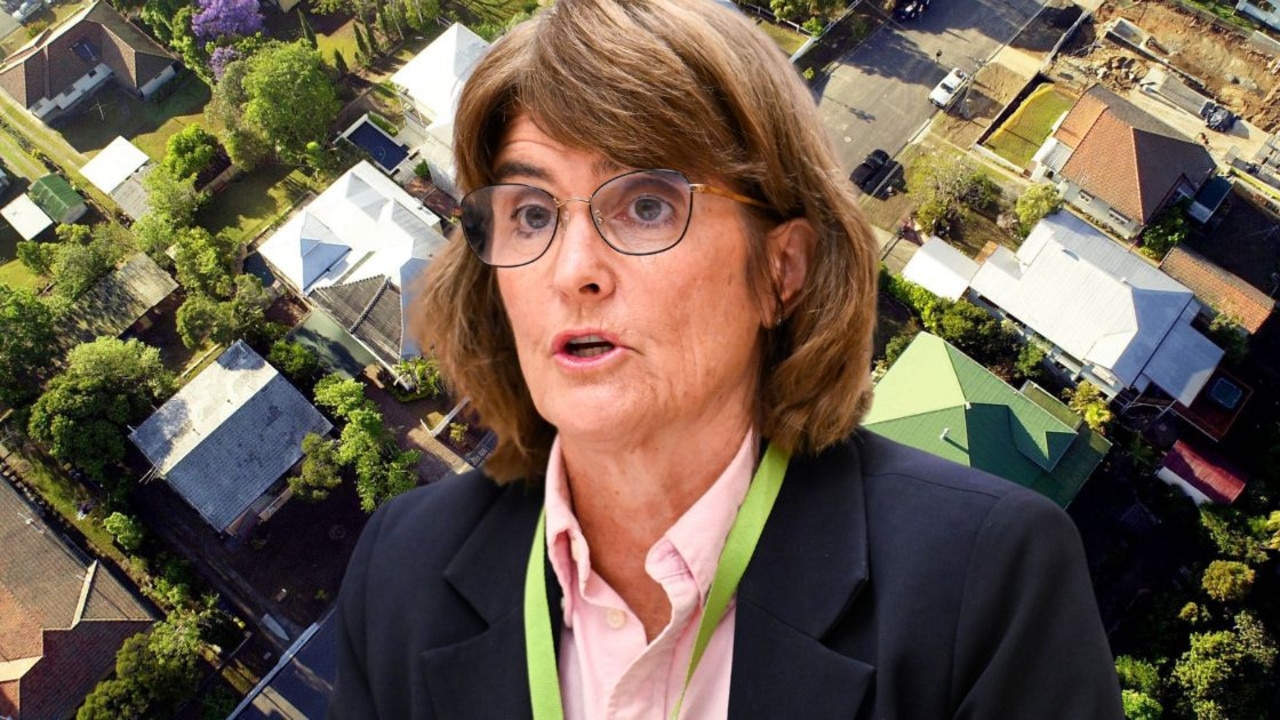Qld Civil and Administrative Tribunal delivers grassroots justice
It’s the most common civil dispute in Queensland, and the head of the state’s civil and administrative tribunal says complainants should be able to get it sorted on their smartphones.

CM Insight
Don't miss out on the headlines from CM Insight. Followed categories will be added to My News.
THE president of Queensland’s “super tribunal’’ sees its future in harnessing technology to make it easier, cheaper and quicker for Queenslanders to resolve their civil disputes.
“We need to invest in innovative technology which will improve and simplify access to justice,’’ Queensland Civil and Administrative Tribunal president Justice Martin Daubney said.
The verdict: Sunshine Coast Turf Club’s plan to reduce QCAT cases
Townsville Magistrates Court could be impacted by the lack of funding to QCAT
Speaking on the 10th anniversary of QCAT, Justice Daubney said he would like to see a QCAT app for minor money claims – the majority of cases before the tribunal which deals with everything from tree, rental and “lemon’’ car disputes to multimillion-dollar building cases.
“Everyday Queenslanders do their online banking on smartphones. They pay bills, do their shopping and order their morning coffee through their smart devices,’’ the judge says.
“Why shouldn’t they be able to have access to an online dispute resolution portal to help them resolve straightforward, low-value disputes?’’
Justice Daubney sees QCAT as a “quiet achiever’’.
Guardianship decisions had even safeguarded the financial affairs of billionaires with dementia who are unable to make their own decisions, Justice Daubney said.
New “lemon laws’’ introduced last year made it easier to pursue a faulty vehicle claim, lifting the tribunal’s jurisdictional limit from $25,000 to claims of up $100,000 for new and used motor vehicles.

Justice Daubney said since the tribunal began hearing motor vehicle cases in September there had been more than 100 applications filed.
QCAT, formed with the merger of 18 tribunals, has two judicial members, four senior members, 20 permanent members and adjudicators, 114 sessional members and 72 Justices of the Peace. It is soon to advertise for more JPs to help hear cases.
“A lot of QCAT’s work is at the grassroots of justice in the community,’’ the QCAT president, now in his third term, said.
In the last 10 years, QCAT has finalised more than 300,000 matters, under more than 170 different Acts and regulations. But Justice Daubney said along the way there were also tens of thousands of interim and interlocutory orders, with some guardianship matters sometimes taking years to be finalised.
He is quick to dismiss suggestions that QCAT is simply a glorified small claims tribunal.
“We regularly deal with multimillion-dollar building disputes. It’s not uncommon for our members to be sitting in hearings that last for days and weeks, with hundreds of thousands of documents,’’ Justice Daubney said.
Guardianship and administration cases have increased by 25 per cent since 2010 – a reflection of the ageing population – with 12,805 cases filed last financial year alone.
QCAT also reviews decisions by government bodies, including blue card, licensing, stamp duty and nature conservation matters and sensitive cases about children under care. “In many ways QCAT brings civil justice directly into the lives of everyday Queenslanders,’’ the QCAT president said.
Justice Daubney, a Supreme Court judge since 2007, admits he was surprised by the breadth of the tribunal’s work when he became president in 2017.
“When I came down here for the first time and saw the diversity of the operations I was taken aback and my initial reaction was ‘You guys have been hiding your light under a bushel’,’’ he said.
In the disciplinary jurisdiction, decisions are made to protect the public from those who should not be a lawyer, teacher, doctor or nurse or in another profession.
“On the other hand, when serious accusations are made against people, you’re talking about their livelihoods, their families. These aren’t small claims – they’re life changing experiences.’’
The vast majority of cases before QCAT are minor civil disputes, but Justice Daubney would prefer to see them renamed “community disputes’’.
“These disputes aren’t minor for the people who are involved,’’ he said.
“To call them minor tends to give the impression that they’re of a lower order of importance. Well they’re not.
“They are really important things, certainly for the people involved.’’
Justice Daubney said for most people, their only interaction with the civil justice system was most likely to be through QCAT.
In QCAT’s 2017-18 annual report, Justice Daubney warned the under resourced tribunal had been “stretched beyond all reasonable and proper levels of tolerance”.
Justice Daubney said QCAT had been a victim of its own success and the need to properly fund it to deliver services had “got lost’’.
“I sought to state QCAT’s case in an accurate, forthright manner and it seems people who listen to these things were receptive to the submission,’’ he said.
While he did not get everything he asked for, the tribunal has since received a 10 per cent budget increase, over five years, from the State Government.


